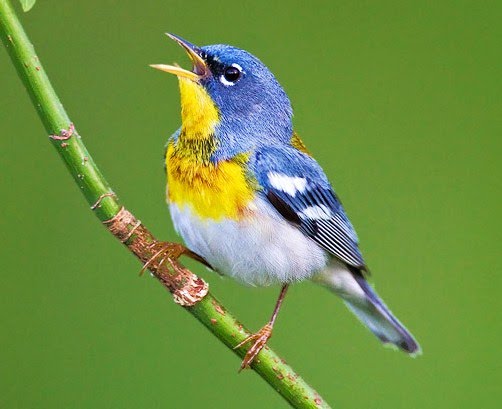Parula americana
Common name:
northern parula (en); mariquita-azul (pt); paruline à collier (fr); parula norteña (es); meisenwaldsänger (de)
Taxonomy:
Order Passeriformes
Family Parulidae
Range:
This species breeds in south-east Canada and across the westerbn half of the United States. They winter further south, in Florida, southern Mexico and the Caribbean.
Size:
This small songbird is 11-12 cm long and has a wingspan of 16-18 cm. They weigh 8-9 g.
Habitat:
Northern parulas breed in hardwood forests, pine-oak woodlands, cypress, and hardwood swamps, wherever Old Man’s Beard lichen or Spanish moss thrives, especially near water. During winter they use a wide range of wooded habitats.
Diet:
These insectivores take a variety of insects and spider.
Breeding:
The northern parula starts nesting in May-June. The nest is generally in a hollowed out bunch of hanging Old Man’s Beard lichen in either a deciduous or conifer tree, often lined with finely shredded moss, fine grasses, plant down or hairs. The female lays 4-5 white or cream eggs with brown specks, which are incubated for12-14 days. The chicks fledge 11-12 days after hatching.
Conservation:
IUCN status – LC (Least concern)
This species has a large breeding range and a global population of 7,3 million individuals. The population has undergone a slight increase over the last decades and is not threatened at present.








